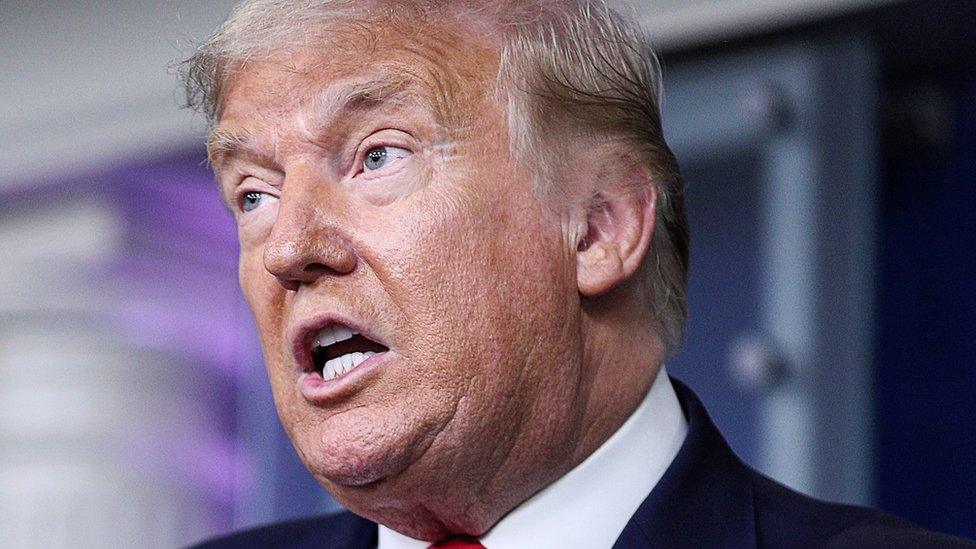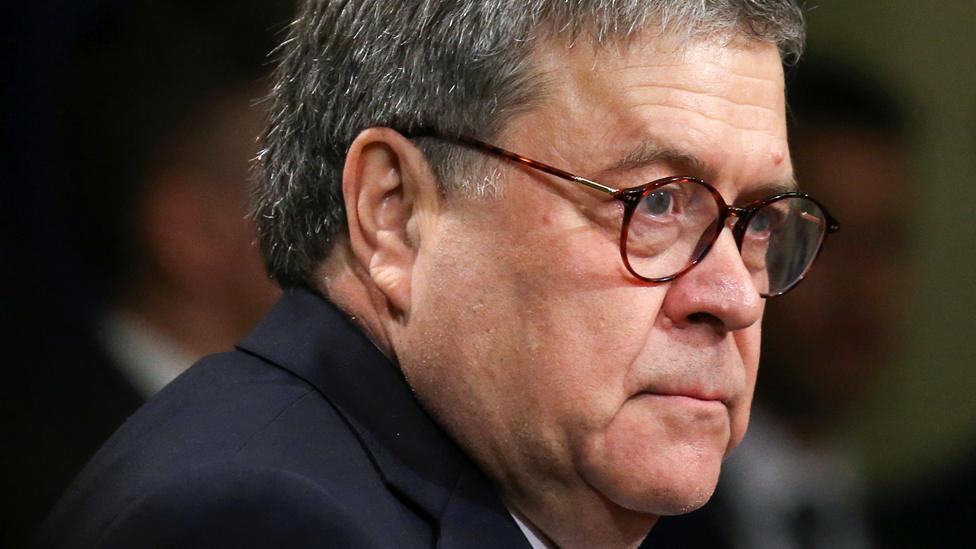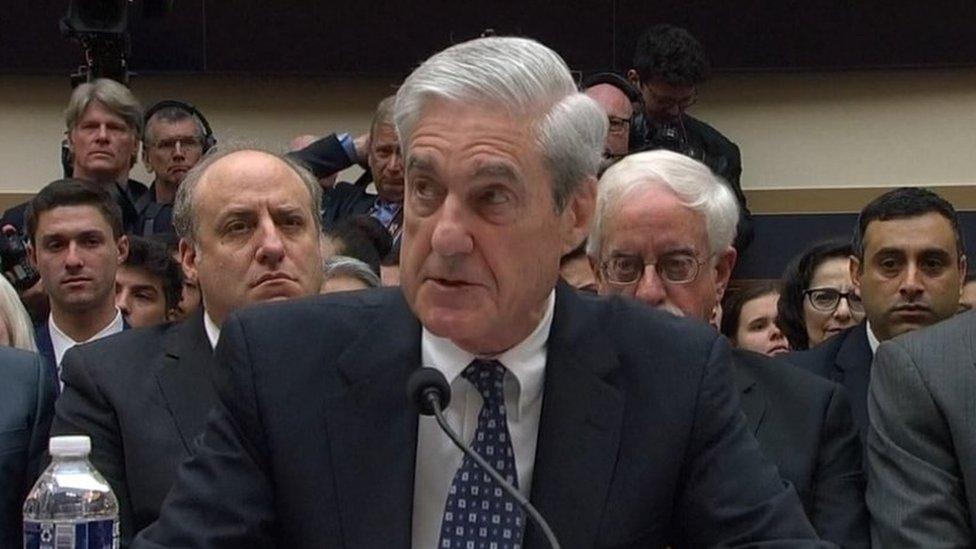Mueller report: FBI lawyer 'altered email' to wiretap Trump aide
- Published

President Trump has consistently dismissed the Russia allegations as a "witch hunt"
An ex-FBI lawyer is expected to admit falsifying a document that was used as part of the inquiry into alleged Russian interference with the 2016 US presidential election.
Kevin Clinesmith's plea deal comes as prosecutors investigate the origins of the investigation by Robert Mueller.
His inquiry found no criminal conspiracy between Moscow and the Trump campaign, though it did not clear the president of obstructing justice.
Mr Trump says it was a "witch hunt".
What did the ex-FBI lawyer do?
Mr Clinesmith is due to accept responsibility for altering an email used to obtain permission to wiretap a Trump campaign aide.
The email from another FBI official was changed to suggest that the aide, Carter Page, had never been a CIA "source" - whereas Mr Page was in fact a CIA informant.
The document was cited in support of the contention that there was "probable cause" to suspect Mr Page was "a knowing agent" of Russia.
The charges against Mr Clinesmith - who during his time at the FBI had been critical of Mr Trump - stem from a US justice department investigation into the origins of the Mueller inquiry.
Mr Trump hailed the reported guilty plea.
"The fact is they spied on my campaign and they got caught and you'll be hearing more," the Republican president said on Friday.
Why is the Mueller report being investigated?
The review of the Mueller investigation which began last year is being overseen by US Attorney General William Barr and run by US federal prosecutor John Durham.
He was tasked with determining whether the collection of intelligence on the Trump campaign in 2016 was lawful.
The Mueller report - in 60 seconds
Critics have accused Mr Barr of launching a review more in the interests of the president than the interests of justice.
Mr Trump has previously accused the FBI investigators who first launched the probe into his election campaign of treason.
Was there a 'deep state' conspiracy against Trump?
Mr Trump has cited the surveillance of his aide as part of a supposed deep state plot against him that he says was orchestrated by President Barack Obama.
A justice department inspector general report in December 2019 did find "serious performance failures" in the FBI counterintelligence inquiry, but no evidence of political bias.
The report found "17 significant errors or omissions" in the FBI applications to spy on Mr Page.
However, the watchdog said there was "no documentary or testimonial evidence that political bias or improper motivation influenced" the opening of the counterintelligence investigation.
What was the Mueller report?
The 448-page report did not conclude that there was a criminal conspiracy between Moscow and the Trump campaign to influence the 2016 US presidential election.
However, it did detail 10 instances where Mr Trump possibly attempted to impede the investigation.
Did the president refuse to be interviewed? Yes, says Mueller.
The report concluded that Russia had interfered in the election "in sweeping and systematic fashion".
That interference took the form of an extensive social media campaign and the hacking of Democratic Party servers by Russian military intelligence, the report said.

Timeline of key events in Mueller inquiry
September 2016: House Intelligence Committee members announce that Russia is making "a serious and concerted effort to influence the US election", external
May 2017: US Deputy Attorney General appoints Robert Mueller as special counsel to investigate Russian interference in the 2016 election and any alleged coordination with the Trump campaign
December 2017: Ex-national security adviser Michael Flynn admits lying to the FBI about meetings with Russia's ambassador weeks before Mr Trump became president
August 2018: Former Trump campaign chief Paul Manafort is found guilty of fraud. He agrees to co-operate with the Mueller inquiry the following month
November 2018: President Trump submits written answers to the special counsel's questions, days after firing Attorney General Jeff Sessions
December 2018: Mr Trump's former personal lawyer Michael Cohen is sentenced to 36 months in prison for lying to Congress, tax evasion and campaign finance violations
March 2019: Attorney General William Barr receives the special counsel's report. He does not release it immediately, but publishes a summary Robert Mueller criticises as lacking "context"
May 2019: Robert Mueller says in his first public remarks that his report does not exonerate President Trump, and announces his resignation
July 2019: Mueller appears before Congress and reaffirms that his report does not exonerate Mr Trump

- Published14 May 2019

- Published25 July 2019
